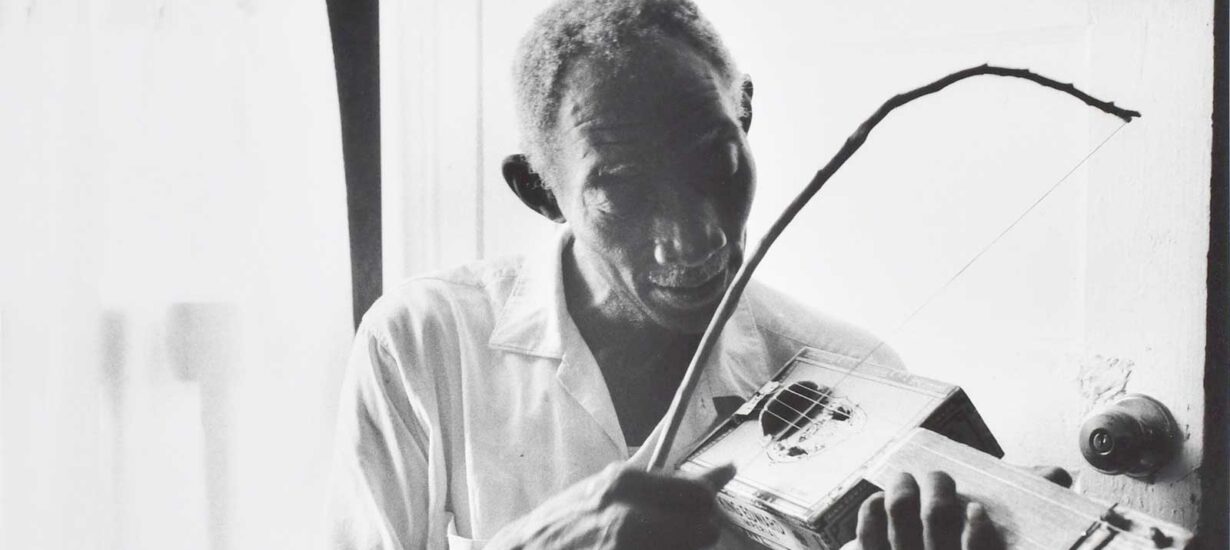Photographer Freeman’s Archive Donated to Wilson Library

The archive of a renowned photographer and award-winning documenter of Southern folk culture has been added to the Southern Folklife Collection at the Wilson Special Collections Library.
The collection represents assignment and project work by Roland L. Freeman, whose career of documenting Black communities, public figures and folk art and artisans spans more than 50 years and consists of nearly 24,000 slides, 10,000 photographic prints, 400,000 negatives and 9,000 contact sheets. Publications and an archive of Freeman’s papers are also included.
The massive collection — a gift from the Kohler Foundation, a family foundation that supports the arts and education — will be available for research and consultation later this year and will offer unique perspectives of African American life and culture in the 20th century.
Steve Weiss, curator of the Southern Folklife Collection, said the SFC is honored and excited to preserve and provide access to Freeman’s archive.
“Freeman’s research and documentation of African American Folklife is innovative in its collaborative methodology and a landmark in the study of African American quilters,” Weiss said in the University’s newsletter, The Well. “His collection will be an invaluable resource for students, historians, folklorists, documentary filmmakers and many more groups.”
Freeman, 86, was born in Baltimore and was inspired to become a photographer after participating in the Aug. 28, 1963, March on Washington, when Martin Luther King Jr. gave his famous “I Have a Dream” speech. Freeman has photographed many landmark events, including the unrest after King’s assassination in April 1968; the Southern Christian Leadership Conference’s Poor People’s Campaign, which organized the Mule Train march on Washington that same year; and South African President Nelson Mandela’s first visit to the United States in 1990.
“I wanted to say something about the times in which I was living, and that’s what I’ve been doing ever since,” Freeman told the National Endowment for the Arts in 2007.
Glenn Hinson, associate professor in UNC’s department of anthropology and a longtime collaborator with Freeman, said Freeman provides a portrait of Black style and Black aesthetics that’s unparalleled in the history of American photograph. “He understood the possibility of capturing deep narratives of tradition, especially in the Black south and the journey of those traditions in the Great Migration, that no one else has done,” Hinson told The Well.
The Roland L. Freeman Collection contains images of famous African Americans, including Miles Davis, Alice Walker, Richard Pryor and John Hope Franklin, as well as scenes of everyday life.
“Freeman’s work method is part of what distinguishes him from other documentary photographers,” Hinson said. “The brilliance of Roland is that, as a photographer, he is absolutely committed to working collaboratively with those whose photographs he’s taking. He would get to know the person and then work to capture representations that are both deep and deeply honest.”
The collection also contains photographs from Freeman’s books and exhibitions, including “A Communion of the Spirits: African American Quilters, Preservers and Their Stories” and projects documenting folklife in North Carolina, Mississippi and Philadelphia.
Recently appointed Vice Provost for University Libraries and University Librarian Maria Estorino said the collection “adds depth, dimension and a vivid visual element” to UNC’s collections while giving the University “new ways to explore and celebrate the history, culture and folklife of Black communities in the United States.”
The Kohler Foundation obtained the Freeman Collection, organized the materials and presented them to the University Libraries, along with a $20,000 grant that Weiss anticipates using for preservation and digitization work on the collection.
Selected images from the Roland L. Freeman Collection will be on view as part of the Recent Acquisitions Evening at the Wilson Special Collections Library from 6 to 8 p.m. on April 27. The event showcasing new additions to UNC’s special collections is free and open to the public.
